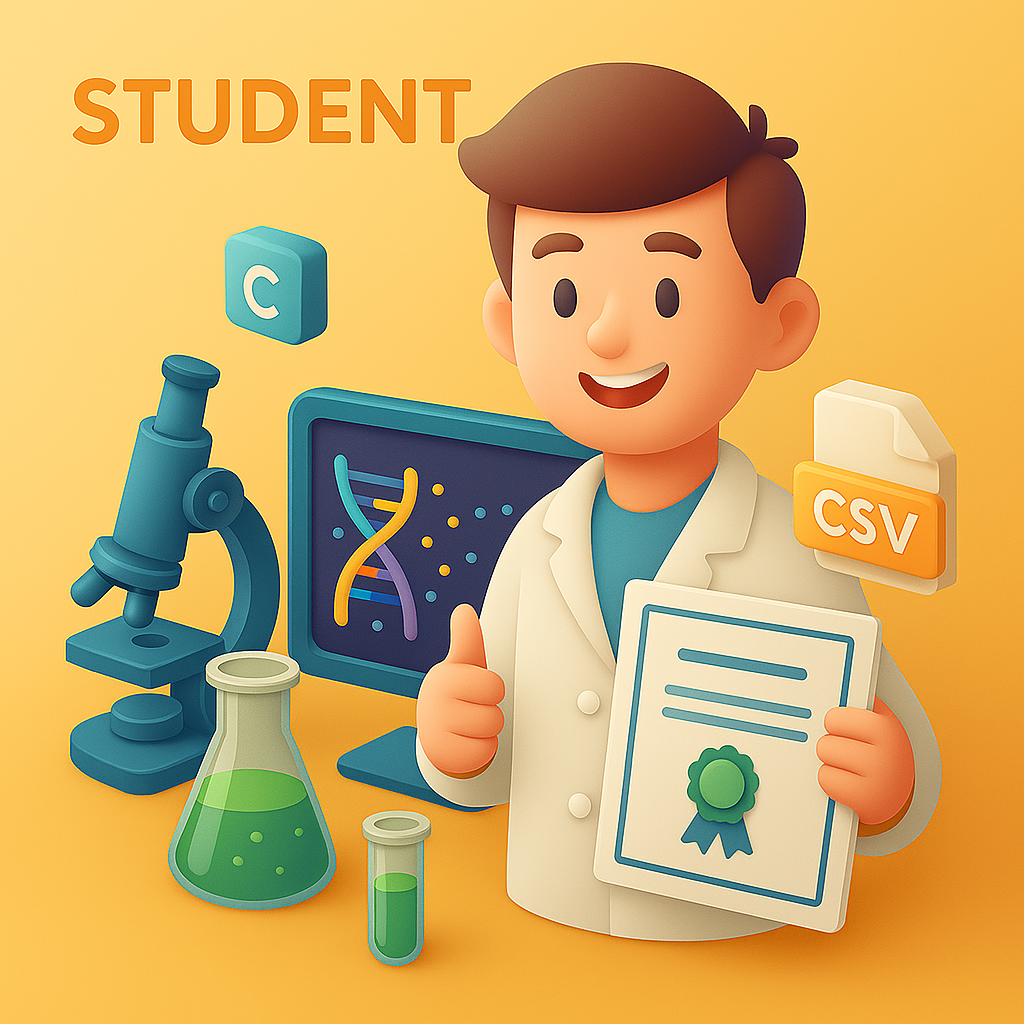
How I Cracked My First Biotech Internship: A Guide for Students
Hey fellow biotech enthusiasts! 👋
If you’re an undergrad or fresh graduate trying to break into the biotech world, I totally get the nerves. I still remember how uncertain and clueless I felt when looking for my first internship.
Today, I want to share how I landed my first biotech internship — and give you a step-by-step guide so you can do it too. Whether your interest is molecular biology, bioinformatics, or industrial biotech, these tips can help you get your foot in the lab door.
🎯 1. Start early & be proactive
I began searching in my 4th semester, well before the usual “final-year project panic.” Why?
Many biotech labs and companies have long application cycles (sometimes 3–4 months ahead).
Starting early gave me time to research options, prepare my resume, and approach professors without desperation.
If you’re reading this and you’re only in your 2nd or 3rd year — even better. Start exploring now!
📝 2. Build a simple, targeted resume
My first resume was honestly cluttered. Then I fixed it:
✅ One page.
✅ Highlighted relevant coursework (like molecular biology, enzymology, bioinformatics).
✅ Listed small college projects, like PCR optimization or basic docking studies, with bullet points showing what skills I learned (pipetting, SDS-PAGE, software tools like PyMOL).
Small, college-level experiments count as experience — just present them well.
💌 3. Don’t spam — write personalized emails
Instead of blasting the same email to 100 labs, I:
Looked up specific professors or company scientists doing work I found exciting.
Read 1–2 of their papers so I could mention them in my email.
Wrote short, clear emails explaining:
Who I was (undergrad biotech student from ___)
Why their work interested me
That I wanted to assist on a short-term internship, even unpaid, to learn.
I sent maybe 15 such emails. I got 4 replies, 2 positive. Quality over quantity works.
🧬 4. Brush up on core lab & computer skills
When I got called for an informal interview, they mainly asked about:
Basic molecular biology concepts (PCR, electrophoresis, cloning vectors).
If I could handle common lab techniques or was willing to learn.
For a bioinformatics lab, they checked if I could at least run BLAST or knew what a FASTA file was.
Quick tip: YouTube is gold for revising Western blots, CRISPR basics, or command-line bioinformatics.
🤝 5. Leverage small networks
Honestly, my biggest break came when a senior from my college told me his ex-lab needed interns for a project on microbial enzyme screening. He forwarded my resume, and I got a call.
So — don’t hesitate to tell your seniors, professors, or even LinkedIn connections that you’re looking. Many openings never get formally advertised.
🌟 6. Be willing to start small
My first internship wasn’t glamorous — I spent weeks doing media prep, autoclaving, pH adjustments, and running basic assays.
But by the end, I’d learned sterile techniques, did a few enzyme assays independently, and even got my name on a small poster presentation. That made my next application twice as easy.
🔥 Short tips to land your biotech internship faster
✅ Use LinkedIn & ResearchGate: Follow labs & biotech startups, interact with their posts — people notice.
✅ Be patient & polite: Follow up after 2 weeks if there’s no reply. But don’t nag.
✅ Keep learning: Free courses on Coursera or edX in molecular biology, transcriptomics, or R for bioinformatics look great on your CV.
🚀 3 key takeaways
✅ Start early, be selective, and personalize your outreach.
✅ Focus on learning lab basics or essential tools — that’s what most internships need.
✅ Even a small internship builds your confidence and opens doors for your biotech career.
🎉 Good luck!
